This is Part 1 of a 5 part series on the ABC.
Part 2 examines interview modes that the ABC employs to smear China.
Part 3 shows how equivalent topics are given different treatments, where the language of negativity is reserved for China.
Balance? What balance?
Nearly every night, Australians can sit down to the ABC News and find out how bad China is. Now, that’s quite an accusation. Well, let’s examine this claim.
A while ago, I took a snapshot of the ABC’s on-line summary page on its Chinese language version of the news. (If you are wondering why the image is blurry, it’s because I’m not interested in implicating the Chinese community – you go and make your own snapshot)
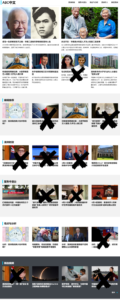
The crosses indicate negative stories on China. As a graph, this looks like:
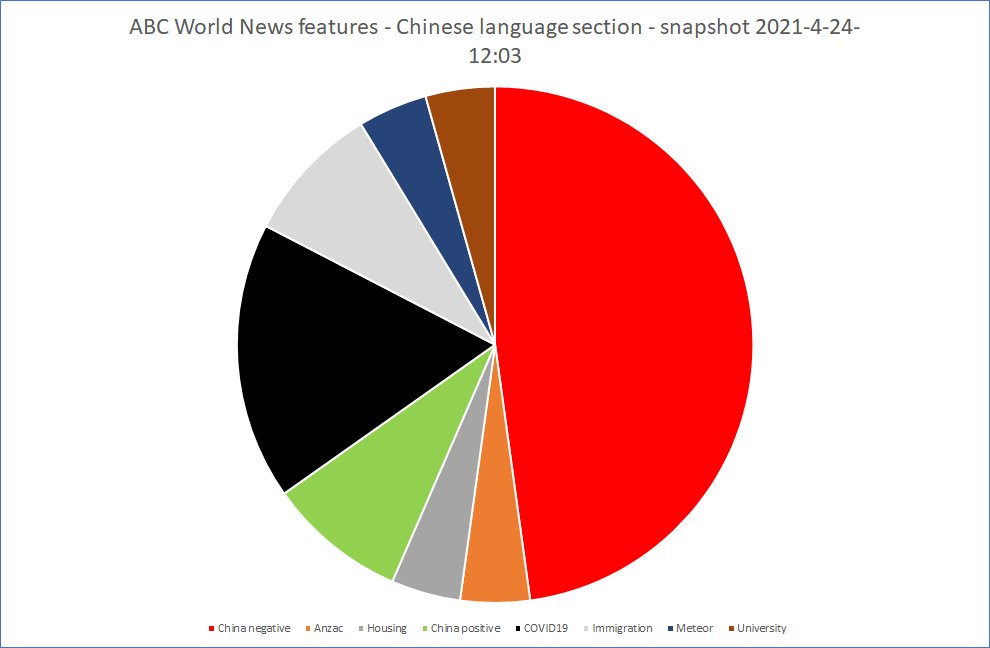
If you think this snapshot unrepresentative, simply follow the page for a week.
Or perhaps, the YouTube News In-Depth is more representative – let’s see. This is screen dump of about the first 300 videos:

OK. That’s a bit hard to see. Perhaps this makes it clearer. This is all the China related stories. Red dots indicate critical or negative stories, white some attempt to balance opinions and green a positive story.
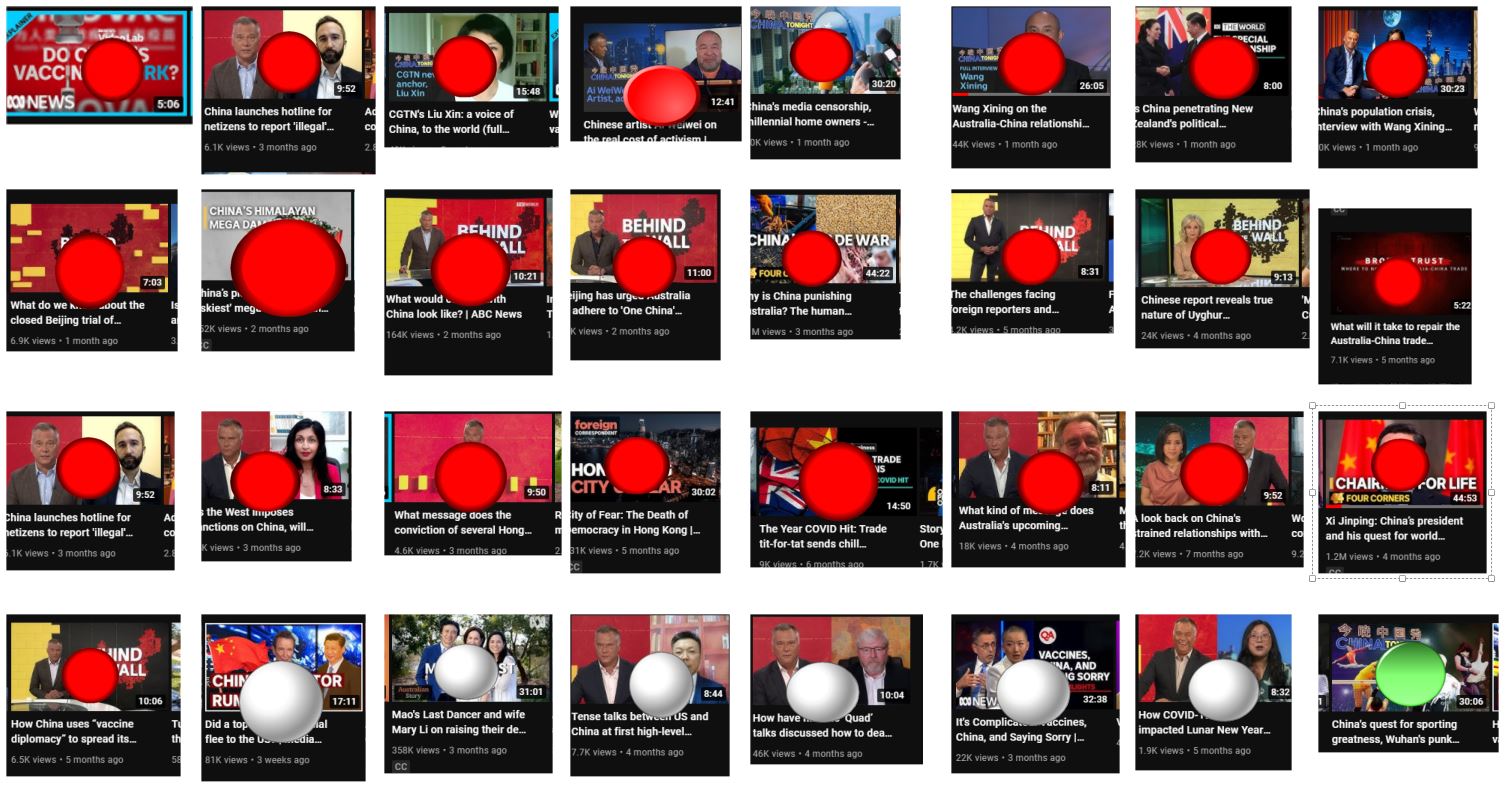
This speaks for itself about the overwhelming anti-China bias. Or, of 32 stories about China, over 75% are negative, a little under 25% are neutral and 3% are positive.
But maybe these articles or YouTube videos aren’t biased.
So, maybe ‘the devil is in the detail’. So, here’s a quick review of a story about the lab leak theory from ABC podcasts. You can check for yourself, here is the link.
https://www.abc.net.au/radio/programs/the-signal/did-covid-19-leak-from-a-lab/13358878
Here’s the image they use:
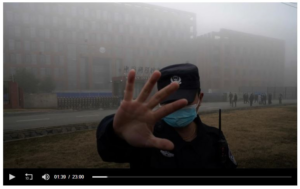
Here’s what the Wuhan Institute of Virology actually looks like.
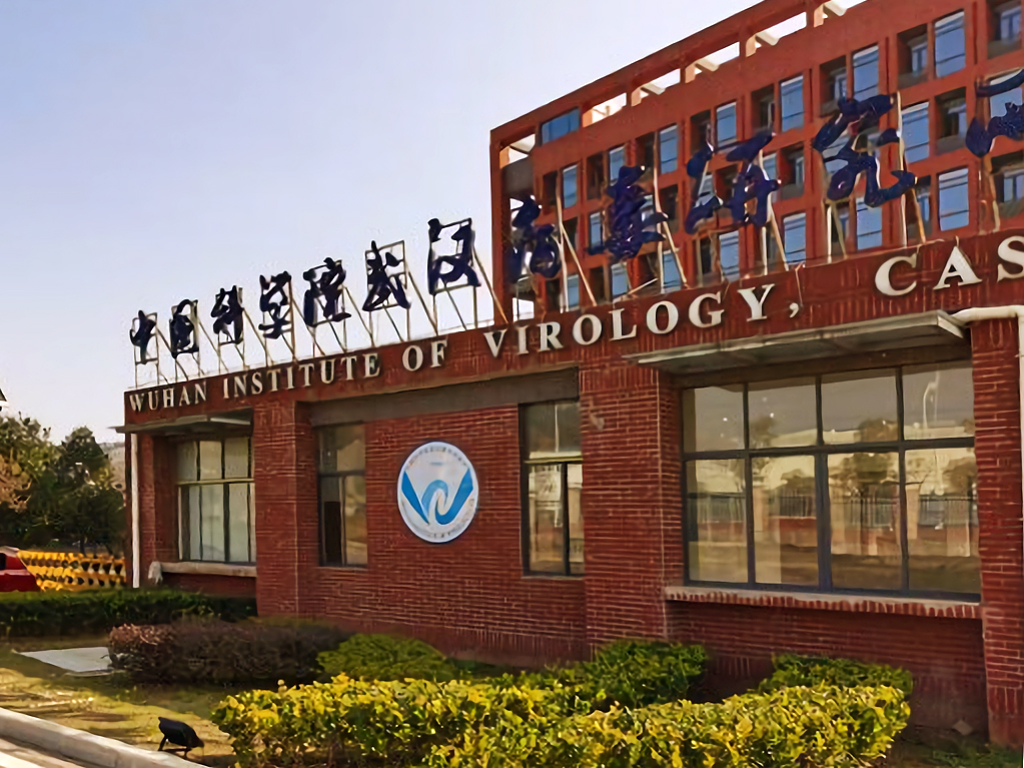
Actually, the place where the research takes place is here.
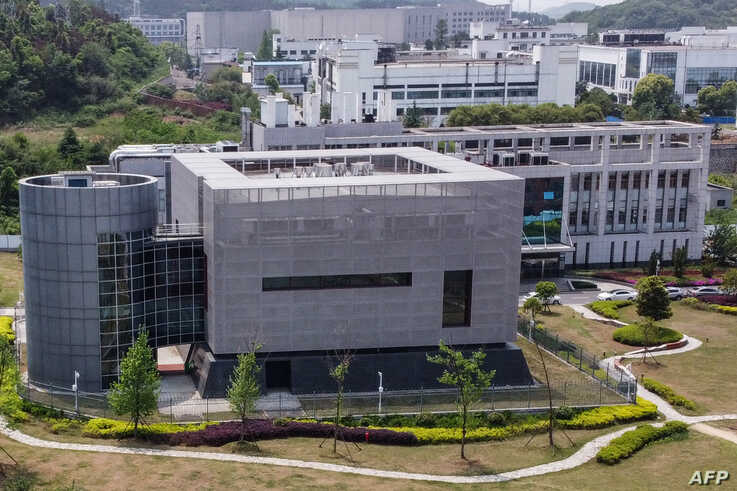
In this file photo taken on April 17, 2020, an aerial view shows the P4 laboratory at the Wuhan Institute of Virology in Wuhan in China’s central Hubei province. – The World Health Organization said on May 5, 2020 that Washington had provided no evidence to support “speculative” claims by the US president that the new coronavirus originated in a Chinese lab. The facility is among a handful of labs around the world cleared to handle Class 4 pathogens (P4) – dangerous viruses that pose a high risk of person-to-person transmission. (Photo by Hector RETAMAL / AFP)
Now, what sorts of signals does the chosen image give? A guard preventing access? A sinister location? When you read the article’s transcript, you realise it necessary to set the listeners mind in the right place. Nothing to do with viruses. Just a particular view of China.
When I emailed the producers and asked about this:
Please explain why your podcast is promoting conspiracy theories which your interviewees admitted had no evidence to support it. Please also explain why this image appears on the podcast, with a sinister framing of the WIV.
Here’s their reply.
“The photo for the episode was chosen as it communicates a clear element of the story: the experts we featured on the episode expressed concerns about China’s lack of transparency around the lab.”
Well, at least they were honest about where they fell on the issue. Condemn China before the reader / listener has an opportunity to form their opinion based on the evidence or what they hear.
Textbook propaganda.
“The Signal podcast has long relied on balanced analysis from reliable experts to unpack current affairs.”
Here’s the balance of the word count of those interviewed.

So, if you don’t believe me, do the word count. How much did they refer to Chinese sources for their information? Wouldn’t want China to have right of reply.
So what thesis did they support? Well, one might expect they would have a neutral view and allow the evidence to speak for itself. I call it a conspiracy when you string together ideas to form a theory based on no facts (an admission made IN THE ARTICLE).
Apparently, it wasn’t.

So, we managed to get 10 bioweapons mentions in and even the Russians are involved. Classic conspiracy.
You think I might be lying? Go ahead, read the transcript. Can’t find it? Neither could I. Because far be it from a reputable media organisation to have such evidence lying around for a critical viewer.
Remember that, when I next accuse you of beating your wife, only bring witnesses who will say I’m right and no photos please, unless it shows a shadowy figure that might be me looking suspicious.
But maybe this is not an important part of ABC’s repertoire on China.
OK. Are you ready for something more heavy weight? Buckle up. This is a long one. We’re going to break down a whole 4Corners episode.
POKING THE DRAGON: Four Corners – 26 April 2021
Why is China punishing Australia? The human impact of the trade war | Four Corners
STEPHEN LONG:
The lunar new year is a time of celebration. In Chinatown they’re feasting on Tasmanian rock lobster. China used to be the biggest market for this delicacy – before a trade stoush that’s smashed Australian businesses.
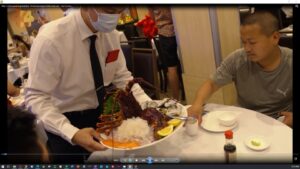
MICHAEL BLAKE:
Only last night, I had a fisherman on the phone crying to me, wondering how he’s going to pay his bills, and yeah, this is only the start, I think. For the best part of a year, China’s trade sanctions have hit industry after industry.

Nobody is going to object to highlighting the damage to Australia’s industries of government policy on China.
DOUG SMITH:
This was massive, this was the end of our export to China.
TONY BATTAGLENE:
The markets actually dropped to zero.
BRENDON TAYLOR:
We’re all in survival mode. We’re doing the best we can. That’s all we can do.
So, now we have your sympathy, it’s time for our anti-China thesis.
STEPHEN LONG:
The dispute is about far more than trade.
SCOTT WALDRON:
The trade barriers that China imposed on Australia in 2020 are cases of economic coercion.
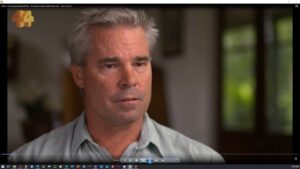
Straight away, the framing is that China’s actions are coercive.
So, if China’s retaliation is framed as coercive, then Australia’s banning of Huawei and its extensive list of actions in the WTO and in imposing tariffs, against other countries, not just China, must be seen as coercive.
Will that point be made? Well, no.
RORY MEDCALF:
China is trying to coerce Australia into supporting essentially China’s interests.
 Rory Medcalf’s inclusion here as an expert in strategic relations is no surprise. However, he is hardly a neutral voice, considering his publications.
Rory Medcalf’s inclusion here as an expert in strategic relations is no surprise. However, he is hardly a neutral voice, considering his publications.
Here’s a sample
“Between 2016 and 2018, Australia’s perceptions of China underwent a significant reality check, with global implications. Australia has been a first mover in pushing back against Chinese foreign interference, including via new foreign influence and interference laws. The recalibration of Australia-China relations, and the events and policy debate that proceeded it, is instructive for other countries seeking to respond to the more assertive and coercive elements of Chinese foreign policy.” (Australia And China: understanding the reality check, Rory Medcalf, 24 Oct 2018)
“These include huge investments in strategic infrastructure as well as economic coercion, social interference, cyber infiltration, espionage, political influence and military presence.”
“But an Australian politician would hardly be the first person to note that some of the Chinese Communist Party’s objectives and methods today resonate with the totalitarian and imperial powers of the past.”
“China’s persecution of minorities, especially the detention of more than a million Muslim Uighur people, has drawn international condemnation, with parallels to the internment of Jews, dissidents and others in the 1930s. Having endured Nazism and the Stasi, Germany is better attuned than Australia in sensing threats to democracy.” (https://nsc.crawford.anu.edu.au/department-news/14970/defence-andrew-hastie)
So, now the framing is complete. We have experts, one an outspoken critic of China, telling us China is coercive.
JANE GOLLEY:
I just do wonder how many times we might choose to poke the dragon before the dragon turns back and blows fire at us in a pretty painful way.
The first dissenting opinion.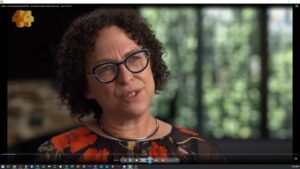 Jane Golley is an economist specialising in China. Seems reasonable to ask her about sanctions. Note how she stays away from coercion narrative.
Jane Golley is an economist specialising in China. Seems reasonable to ask her about sanctions. Note how she stays away from coercion narrative.
STEPHEN LONG, REPORTER:
Tonight, on four corners, we investigate China’s trade sanctions against Australia. We’ll meet the Australian business people hit hard by China’s bans and tariffs. And we’ll explore whether Beijing is using trade as a weapon in a campaign of political coercion.
But Stephen reinforces the theme.
Well actually, Stephen, the organisation that adjudicates ‘coercion’ is the WTO. I’m pretty sure Stephen Long isn’t in any position to make this judgement. So, this is framing for propaganda purposes, not reporting.
19 May 2020 Newsreader:
China has followed through on its threat to whack crippling tariffs on Australian barley, a move that will further inflame tensions between the two nations. The 80 per cent tariff will be in place for five years, a decision that could cost Australian farmers hundreds of millions of dollars.
This is an opportunity to explain how these cases take a long time to resolve – even decades – and therefore avoiding these, at all costs, is a sound strategy. Certainly, short term political posturing has serious consequences. But, that context might threaten the theme of coercion.
Just watch how our host keeps our attention on China’s culpability in this:
STEPHEN LONG:
The Salt Lake Country of southern WA is a long way from Canberra, and a world away from Beijing. But farmers here have found themselves on the front line of a trade war with China. It’s a windswept landscape … and it may not look like a food bowl … but it’s rich terrain for grain.
DOUG SMITH, WA GRAINS GROUP:
In this particular area, the Lakes area of Western Australia, barley is one of our main cash crops. I mean, it probably accounts for 50 percent of the grain that’s grown here in Western Australia.
Yes. This, and many other industries, are vital industries in keeping Australia’s income diversified. Probably not a good idea to play politics with.
STEPHEN LONG:
Doug Smith heads the industry association WA Grains Group. Until last year, he was riding a barley boom driven by surging Chinese demand. At its peak, China was buying more than a billion dollars’ worth of Australian barley a year.
DOUG SMITH:
We were sort of exporting somewhere around six million tonne of barley to China, we’re talking Australia-wide here. I think Western Australia alone was exporting somewhere around three and a half million tonne. So, we’ve forsaken all the other markets basically because it was all we could do to produce enough to satisfy the Chinese market.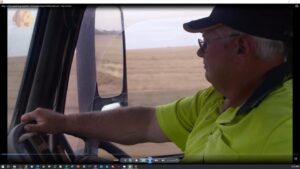
Here, we have an opportunity to open up a conversation on the high risk business strategy – but, of course, that complicates the anti-China theme.
STEPHEN LONG:
But the risk of banking on China hit home last May, when it imposed a crippling 80 per cent tariff on the industry.
That’s it. That’s the discussion of the risky strategy.
Unfortunately, Australian politicians have little to no appreciation of the risks in business, as most have never run businesses. This was a good opportunity to interrogate those such as Andrew Hastie on why he felt it proper or useful to comment on China when it was likely industries in his state would be affected.
Regardless of however you think about free speech, the words of Australian politicians do impact and Hastie and his ilk need to explain why it is sensible or practical to say those things (not whether it is principled). Why were they not interrogated about risk?
DOUG SMITH:
All of a sudden, here it was. And this wasn’t the $10 or $15 a tonne that the industry thought might’ve been imposed on us, this was massive, this was the end of our export to China.
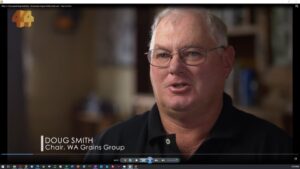
China is fully entitled to impose a tariff if it believes there has been dumping. Back to the umpire at the WTO.
STEPHEN LONG:
To make matters worse, the announcement of China’s decision came when the new season’s crops were already in the ground.
Here’s the framing for the next claim – that China deliberately wanting to cripple the industry.
DOUG SMITH:
If they had’ve made the announcement of that level of tariff, oh, let’s say, in February, it would have been quite easy for growers to say, well, look, we’re not going to grow as much barley. But to wait until after, for all intents and purposes, a lot of the Australian barley crop was planted, was it strategic? I would think so.
Despite his place in the industry, this is a claim that Doug cannot possibly prove. But, challenging him would steer us away from the theme of China-does-bad.
STEPHEN LONG:
It was a bitter blow after exhaustive efforts to refute China’s allegations that Australia was dumping barley, at below the cost of production, onto the Chinese market.
DOUG SMITH:
The timeline that was put on the industry to respond were so short. It was incredible. And the detail that they were looking for. They were looking for basically financial detail back down to grower level.
Possible tariff impositions are a fact of trade and export industries. Is this lack of preparedness for what China is entitled to do? Why is this not pursued?
DOUG CLARKE, BARLEY GROWER:
They’ve worked out very well to target the industries that cause the least amount of problems in their country, so it doesn’t shut down their woollen mills so the wool keeps going, the iron ore. So, they’re strategically picking off Australia where it has the least impact on their economy.
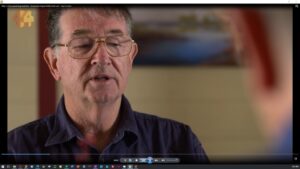
Doug Clarke is entitled to his opinion, but his claims need to be tested. This would be an opportunity to ask a representative from China about the timing. However, the right of reply does not seem to be considered to be a principle by which 4Corners operates.
STEPHEN LONG:
Debby, how do you feel about this?
DEBBY CLARKE, BARLEY GROWER:
Well, it is a bit annoying. But you can’t waste energy on being angry or annoyed when you cannot influence a foreign government.
Women always give more practical answers and she hits the nail on the head. She can’t influence Beijing but senior Australian politicians can. They could use diplomacy.
DOUG CLARKE:
I mean, we can’t do trade at any cost. I mean, we got to uphold our principles and the principles of the Australian way. We don’t want to lie down in a foetal position and get kicked to death. We need to stand up and fight back.
So, Doug, you are paying for your principles. China has its principles too. It stands up for them. Except you don’t expect the ABC to canvas those values.
If you choose to fight back, you choose to take the punches. Best to know what it is you are fighting for if you have to suffer the pain. Australia has a long and sad record of fighting for principles which turn out to be futile, such as a 20 year war in Afghanistan.
Is this not a good time in the documentary to get the perspective of a long serving diplomat, such as Gary Locke, who believes that public criticism of China is counterproductive or former secretary of state Susan Shirk or Susan A. Thornton.
It appears that 4Corners is only set on painting a picture of the pain, rather than reflecting the complexity of international relationships. Interviewing those with a more nuanced view of this diminishes the anti-China impact.
STEPHEN LONG:
Australia is challenging China’s tariff at the World Trade Organisation.
DAN TEHAN, FEDERAL MINISTER FOR TRADE:
It might take one or two years for us to resolve it, but the principle of it is incredibly important. We want to go to the umpire, and we want to get a decision from the umpire, whether the actions being taken are right or not. If we don’t have organisations like the World Trade Organisation for us to go to then it’s basically the rule of the jungle.
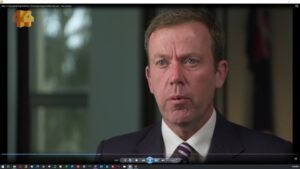 Yet another opportunity to ask the Minister why Australia has been so ready to go to the WTO against China and does not expect some kind of retaliation. Maybe an interview with David Uren on Australia’s anti-dumping record (84 actions against 6 from Japan) might have put this in perspective.
Yet another opportunity to ask the Minister why Australia has been so ready to go to the WTO against China and does not expect some kind of retaliation. Maybe an interview with David Uren on Australia’s anti-dumping record (84 actions against 6 from Japan) might have put this in perspective.
But 4Corners is not actually interested in perspective. This is simple propaganda, letting their political master talk for minutes on end about their justifications.
STEPHEN LONG:
Barley was the start of a slew of trade allegations and sanctions that followed a souring of relations between Canberra and Beijing.
19 April 2020 Newsreader:
The Foreign Minister Marise Payne is refusing to be drawn on whether she trusts China over its handling of the coronavirus pandemic.
STEPHEN LONG:
Australia’s call for a covid inquiry appeared to be a catalyst.
20 April 2020 Newsreader:
A Chinese analyst has described the foreign minister Marise Payne’s calls for an independent inquiry into the origins of the coronavirus outbreak and the global response as deplorable.
So, now some counter-narrative.
PROFESSOR RORY MEDCALF, HEAD, NATIONAL SECURITY COLLEGE, AUSTRALIAN NATIONAL UNIVERSITY:
It’s a big mistake to think that this is simply because of the way the Australian Government responded to the pandemic, the way the Australian Government, very bluntly called for an international investigation into the origins of COVID-19. If it wasn’t that, it would have been something else. There’s been an accumulation of friction points between Australia and China, I’d say at least over the past five years that go to fundamental differences of interests and of political values.
PROFESSOR JANE GOLLEY, DIRECTOR, AUSTRALIAN CENTRE ON CHINA IN THE WORLD, AUSTRALIAN NATIONAL UNIVERSITY:
If you look at the downward trend of political relations it actually goes back, I think, to a high point, of about 2014 and there are a number of actions on both sides, of both the Chinese and Australian government, that signal a pretty consistent downward trajectory, and there’s not a lot of reason to think that that’s going to turn around.
It’s now safe to introduce any culpability on Australia or an alternative view. 4Corners has established “China bad – we sad”.
So, maybe we can now have a nuanced narrative?
Well, first we get to hear from China. I mean, they’ve been in the dock for half the show. Let’s give them 10 seconds of explanation.
STEPHEN LONG:
China set out its grievances in a document leaked to the media last year. They included banning Chinese telco Huawei from building Australia’s 5G network. Australia’s foreign interference laws. The call for an “independent inquiry into Covid-19”. Australia’s “incessant wanton interference in China’s Xinjiang, Hong Kong and Taiwan affairs”. And “antagonistic” media reports that were “poisoning the atmosphere of bilateral relations”.
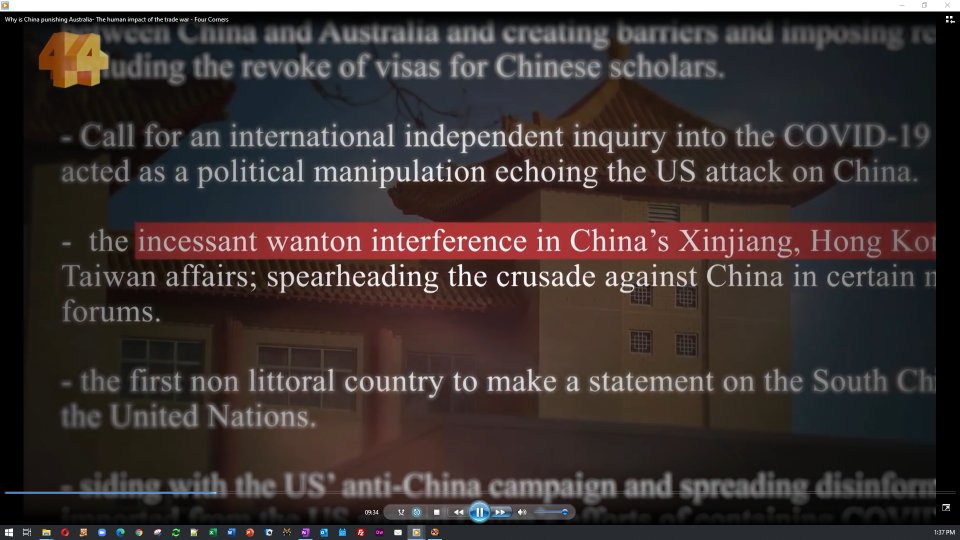
Here’s an opportunity to bring in those who judge these provocations as completely unfounded and unnecessary.
For example,
“Associate Professor Matthew Sussex from the Australian National University said Australia’s attempt to get out in front of the issue ‘needlessly annoyed the EU, and further problematised our relationship with China’.”
“There’s a good argument to say that we stood to gain more by waiting,” he said.”
“The EU would have gone to the WHA anyway, and Canberra could have played a middle role to mediate whatever hard line Washington had come up with, building consensus and a coalition in the process.”
No, much better to bring in a shady story.
STEPHEN LONG:
The reporter who was handed the document by an embassy official had no doubt about China’s agenda.
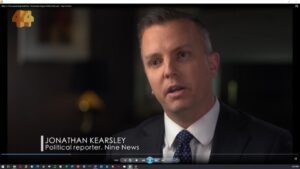 JONATHAN KEARSLEY, POLITICAL REPORTER, NINE NEWS:
JONATHAN KEARSLEY, POLITICAL REPORTER, NINE NEWS:
I was very clear in asking her, what does this mean in the context of the trade issues and what we’d seen with beef and barley and wine and the like? And she said:
STEPHEN LONG:
On the same day, China’s powerful foreign ministry echoed key grievances in answer to a question about the trade dispute.
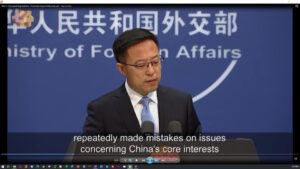 ZHAO LIJIAN, MINISTRY OF FOREIGN AFFAIRS SPOKESPERSON:
ZHAO LIJIAN, MINISTRY OF FOREIGN AFFAIRS SPOKESPERSON:
Australia has blatantly violated the basic norms of international relations, repeatedly made mistakes on issues concerning China’s core interests like Hong Kong, Xinjiang and Taiwan.
So, here’s an opportunity to properly examine the grievances. Perhaps former Foreign Minister Julie Bishop could have been interviewed as to how the US is crippling the WTO and defying the ‘rules based system’.
Perhaps introduce how Australia’s alignment with US ‘freedom of navigation’ exercises in the South China Sea ignore that the US has not ratified the law of the sea.
But, no, it’s time to return to the coercion theme. Back to Rory.
RORY MEDCALF:
Many of these points go to the independent policy choices of the Australian Government in a democratic system, including choices to do with legislation, with the funding of think tanks, with the freedom of the Australian media, with diplomatic positions Australia takes in the international system. So, it’s simply untenable for any Australian government to concede on those points. And I fear that in a way the Chinese Government has painted itself into a corner.
Perhaps Rory simply doesn’t understand that the idea of democracy is precisely so decisions can be made and turned around if necessary. Seems like he wants to simply dictate what Australia’s position can be.
Any of the actions that the government has taken can be reversed. That’s what government means. The art of negotiation and compromise.
Medcalf seems quite unable to understand that it is precisely the independence that government has from think tanks that allows them to reverse policy and legislation. They do not need to hold firm on their current position in order to affirm his views.
It’s not untenable to ‘concede’ any points. Not everybody has Medcalf’s ideology of belligerence, certainly not those who work for years in trade or diplomatic service (mentioned above).
Of course, 4Corners could have asked him to justify this belligerence mode, but that would be them diluting the narrative they are pushing.
STEPHEN LONG:
In the same month that China effectively banned Australian barley, another rural export was hit.
12 May 2020 Newsreader:
Four Australian abattoirs have been banned from selling red meat into China. One of the meat works is in Casino in northern NSW while three are in Queensland.
PATRICK HUTCHINSON, CEO, AUSTRALIAN MEAT INDUSTRY COUNCIL:
When we found out it was all hands to the pump exceptionally quickly. I certainly was on the phone for basically 72 hours because of the sheer shock of this coming in. It was without warning.
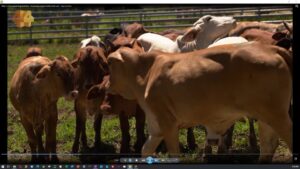 It is astonishing that the AMIC was so out of touch with Australia-China relations that it could not see the relationship deteriorating and shows a complete disjunction between the government and industry.
It is astonishing that the AMIC was so out of touch with Australia-China relations that it could not see the relationship deteriorating and shows a complete disjunction between the government and industry.
DR SCOTT WALDRON, SENIOR RESEARCH FELLOW, UNIVERSITY OF QUEENSLAND:
In the past, those sort of problems have been either ignored by China, or they’ve been dealt with on an informal basis, industry to industry, people to people, but in the current environment, China’s become particularly formal about it, with very low tolerances. So that is their pretext to stop that trade.
This is a key element of understanding the China – Australia relationship. While Australia is chest-beating, China has been pragmatic and is seeking a pragmatic solution from Australia.
This important element is given less than 30 seconds of air time.
STEPHEN LONG:
Ten per cent of the Casino meatworks’ business was lost with the China suspension.
STEPHEN LONG:
What do you reckon about this situation with China?
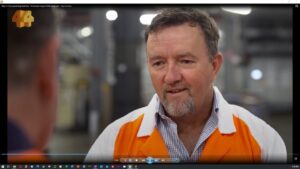 SIMON STAHL, CEO CASINO FOOD CO-OP:
SIMON STAHL, CEO CASINO FOOD CO-OP:
Look, I’m really focussed on doing what I’ve got to do, in relation to China, and that is I’ve got to make sure my product leaves here that’s acceptable to markets all over the world and that includes China. I don’t really listen to any of the outside noise because I can’t control it.
Businesses operate within the trade restrictions of countries across the globe, each with different approaches. They adapt their products and modes accordingly. Why is the government minister not being asked about a similar pragmatic approach to China?
STEPHEN LONG:
Australian abattoirs were suspended for similar issues in 2017, but the matter was resolved in three months. This time, close to a year on, there’s no resolution – and no indication of when the suspensions might be lifted.
SIMON STAHL:
Oh, look, hard to tell, but I’m comfortable we’re closer to getting back in than we were yesterday.
STEPHEN LONG:
It doesn’t help that Chinese officials won’t pick up the phone.
PATRICK HUTCHINSON, CEO AUSTRALIAN MEAT INDUSTRY COUNCIL:
It is exceptionally frustrating. And that’s the concerning part for us as an industry because our dialogue is what makes us operate effectively well in trade. And if that dialogue’s not there, then it’s nigh on impossible to try and then fix some of these issues.
Why is someone like former foreign minister Julie Bishop not being asked about why she was able to maintain communication during tensions and why this has broken down.
This would blur the 4Corners narrative that its “all China’s fault”.
STEPHEN LONG:
When Australia’s new trade minister Dan Tehan tried to engage his counterpart in China, he was also met with silence.
DAN TEHAN:
I wrote to him in the middle of January. It was a very extensive letter, it set out why it was so important for us to be able to have a ministerial dialogue.
STEPHEN LONG:
What signal do you read into the lack of reply?
DAN TEHAN:
I’m not quite sure, I’m a little puzzled by it, because I, I think the, the best thing that all countries can do is maintain dialogue. If you’ve got differences, uh, the best thing you can do is, is engage, and make sure you can work through them. So, my hope is that over time, that’s where we’ll get to.
So, that’s the extent of the grilling for the minister? A complete failure at his job and “Hope it gets better” and he’s let go at that?
Of course, why would the ABC or 4Corners want to upset a government minister?
STEPHEN LONG:
Economist and China expert Scott Waldron grew up on the land, in beef country. His family’s property, in the Tweed Valley of northern New South Wales, sends its cattle to the co-op at Casino. Scott Waldron has also lived and researched extensively in China, is fluent in Mandarin, and well-placed to analyse China’s trade claims.
SCOTT WALDRON:
The trade barriers that China imposed on Australia in 2020 are cases of economic coercion. And the intent is for China to change Australian policy including on issues of the South China Sea, Hong Kong, Xinjiang, Huawei, and foreign interference.
As the number of cases before the WTO shows, trade disputes are all pervasive, prolonged and complex. To characterise China as some special case is simple Sinophobia.
4Corners makes no attempt to dispute or question Waldron’s conclusions, as a truly investigative media outfit would. Much better to keep the simple anti-China narrative going.
A deep dive (that one would expect of investigative journalism) would have revealed that Australia is provocatively supporting the US in freedom of navigation exercises in the South China Sea, joining the US, which has not ratified (and thence made into law) the UN Convention of the Law of the Sea.
Why is the sheer hypocrisy of these kinds of positions taken by Australia simply accepted by 4Corners and the ABC?
STEPHEN LONG:
On his reading, the trade sanctions flowed from demands by China’s Communist Party for retaliation against any perceived threats or criticism of China.
Simply accept this conclusion. No challenge.
SCOTT WALDRON:
Xi Jinping has instructed China to resolutely defend against any internal or external threat to the Communist Party, and so that so-called “battle stance” has become embedded within the party, within the Ministry of Foreign Affairs, and its wolf warrior diplomacy, and down into economic units, including the Ministry of Commerce, the State Administrations of Customs and Quarantine. So, if you’re a mid-level official, in one of those economic departments, your incentive, the way that you get ahead, is to appeal to that spirit.
Waldron constructs a rationale for the action using information he cannot possibly know.
Has he been a “mid-level official in an economic department trying to get ahead”? Or is he repeating hearsay?
For someone who routinely makes assessments on the basis of fact, this is sloppy opinion from Waldron and 4Corners should be calling it out.
JANE GOLLEY:
Economic coercion is a very deliberate activity to try and make the Australian government change its policy stance. It’s certainly not clear that that is what Beijing has set out to do and nor is it clear that have achieved that goal, but I think what we can say is that by the time you’ve got 14, 15 sectors on the chopping block, whether you call it coercion or something else, it is quite clear Beijing is sending a signal and it looks very much like punishment to me.
This is the beginning of some sort of proper assessment, but cautiously expressed.
At this point, has 4Corners asked any Chinese source, including an academic source, for their assessment?
If you’ve come this far in this assessment, you’ve done well. There is plenty more. A comment from the Transport Workers Federation, who, surprisingly, blames China. Apparently, China is required to purchase our products, like a good servile colony might do.
Or Michael Blake, who doesn’t quite understand the irony of saying “Australia needs to stand up for itself” as if China wasn’t doing that.
Or Dan Tehan talking about sovereignty while ignoring China’s sovereign right to protect its interest without outside interference.
We should maybe finish with Rory Medcalf’s words.
It has backfired so far on China in that Australian policy positions are not shifting. Australian public opinion is turning against China and the Chinese Communist Party …
Of course, this is precisely the intent of the government. They, like their instrument in the ABC and 4Corners have one agenda.

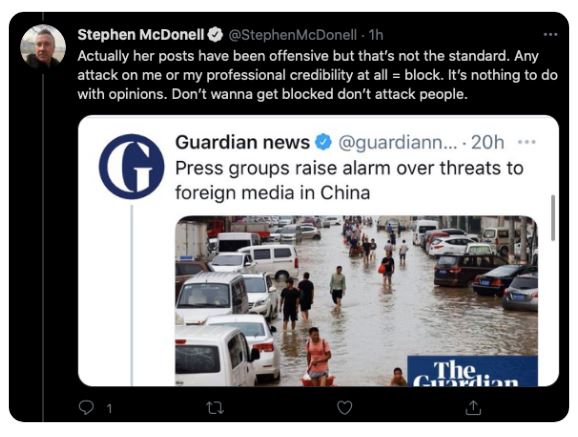












 Rory Medcalf’s inclusion here as an expert in strategic relations is no surprise. However, he is hardly a neutral voice, considering his publications.
Rory Medcalf’s inclusion here as an expert in strategic relations is no surprise. However, he is hardly a neutral voice, considering his publications. Jane Golley is an economist specialising in China. Seems reasonable to ask her about sanctions. Note how she stays away from coercion narrative.
Jane Golley is an economist specialising in China. Seems reasonable to ask her about sanctions. Note how she stays away from coercion narrative.


 Yet another opportunity to ask the Minister why Australia has been so ready to go to the WTO against China and does not expect some kind of retaliation. Maybe an interview with David Uren on
Yet another opportunity to ask the Minister why Australia has been so ready to go to the WTO against China and does not expect some kind of retaliation. Maybe an interview with David Uren on 
 JONATHAN KEARSLEY, POLITICAL REPORTER, NINE NEWS:
JONATHAN KEARSLEY, POLITICAL REPORTER, NINE NEWS: ZHAO LIJIAN, MINISTRY OF FOREIGN AFFAIRS SPOKESPERSON:
ZHAO LIJIAN, MINISTRY OF FOREIGN AFFAIRS SPOKESPERSON: It is astonishing that the AMIC was so out of touch with Australia-China relations that it could not see the relationship deteriorating and shows a complete disjunction between the government and industry.
It is astonishing that the AMIC was so out of touch with Australia-China relations that it could not see the relationship deteriorating and shows a complete disjunction between the government and industry. SIMON STAHL, CEO CASINO FOOD CO-OP:
SIMON STAHL, CEO CASINO FOOD CO-OP: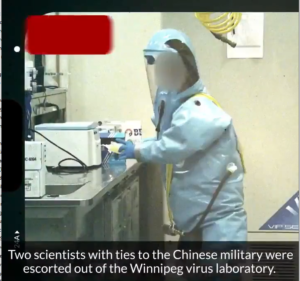
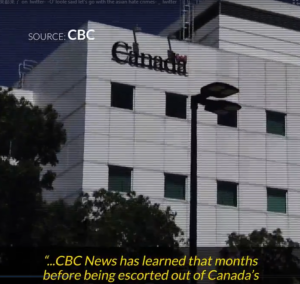
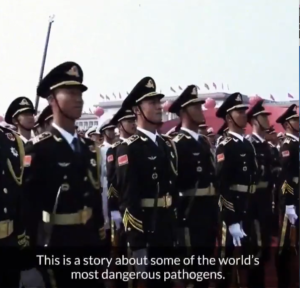
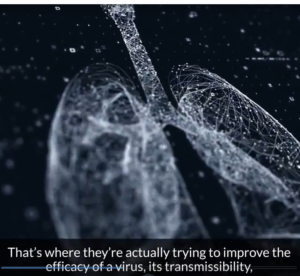
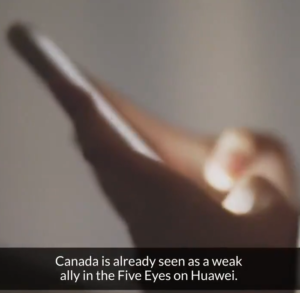 Now we have the global inquiry onto the origins of the worst pandemic in modern history. [11]
Now we have the global inquiry onto the origins of the worst pandemic in modern history. [11]